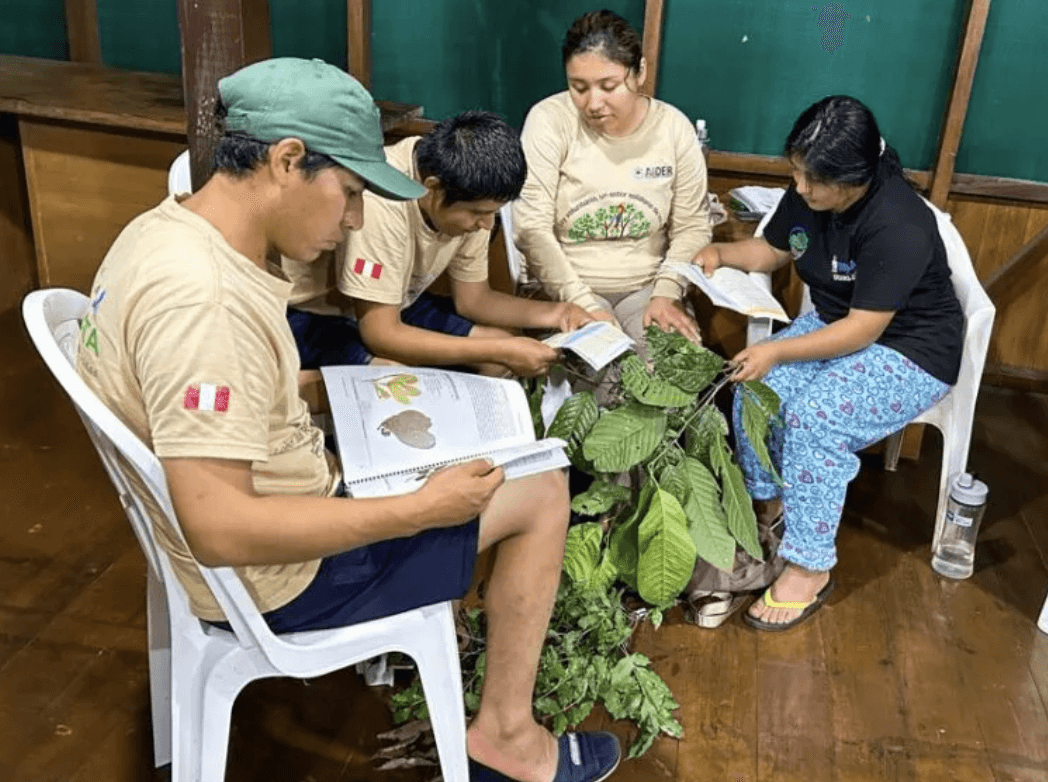Carbon avoidance
Protecting the Tambopata-Bahuaja Biodiversity Reserve in Peru
Peru, the third-largest country in South America, is renowned for its stunning biodiversity, rich cultural heritage, and critical ecosystems. However, these natural assets face increasing threats from deforestation, climate change, land-use changes, and extractive activities. In the Madre de Dios region, near the Bolivian border, a transformative project led by the Peruvian NGO AIDER is working to protect the Tambopata National Reserve and a section of Bahuaja-Sonene National Park. Spanning 591,119 hectares, the project will avoid 457,750 tCO₂e emissions annually over 20 years while delivering extensive benefits for biodiversity and local communities.
Project timeline
30 Jun 2030

Project End Date
1 Dec 2025

Monitoring Report 2025
During the year, support was provided to approximately 580 families, including farmers, fish farmers, artisans, tourism businesses, chestnut growers, ranchers, artisanal fishermen, and others who benefited from the project. Technical assistance was provided, including: technical advice on maintenance pruning, awareness-raising on productive activities, monitoring of grafted cacao seedlings and free-roaming plants, monitoring forest plantations, raising awareness among cacao producers, aquaculture farmers, and artisans from native communities, among other activities.
30 Jul 2019

Achieves Climate, Community & Biodiversity Standards (CCB) under Verra
1 Jul 2010

Project Start Date

The project supports local communities by promoting sustainable livelihoods, providing financial resources, and technical assistance. These initiatives improve income generation and economic resilience, helping to alleviate poverty in the region.

Through sustainable agricultural practices and support for forest-friendly activities, the project improves food security by enhancing crop yields and promoting diversified income streams for local families.

The project reduces deforestation, contributing to cleaner air and a healthier environment. By creating sustainable practices, it minimises exposure to harmful pollutants, benefiting the well-being of local populations.

Capacity-building initiatives, such as training for park rangers and community surveillance committees, promote environmental education and skill development, empowering local communities with knowledge to sustain their ecosystems.

The project creates employment opportunities and supports sustainable economic activities, fostering economic growth while ensuring environmental sustainability and empowering local communities.

By promoting sustainable use of natural resources and reducing reliance on extractive activities, the project encourages responsible production and consumption practices among local communities.

The project avoids 457,750 tCO₂e emissions annually by preventing deforestation, significantly contributing to global efforts to mitigate climate change and reduce greenhouse gas emissions.

Through the protection of tropical rainforest and critical biodiversity, the project conserves vital ecosystems, safeguards endangered species, and supports the sustainable use of terrestrial ecosystems in the Madre de Dios region.
About
Live
2019
REDD+
1
2
3
4
8
12
13
15
Fund this project
Funded directly through our REDD+ in our marketplace. Alternatively speak to a climate expert to support your wider climate action strategy.
Verifications

Verification: Verified Carbon Standard and Climate, Community and Biodiversity Standard
This project is verified by the Verified Carbon Standard and Climate, Community and Biodiversity Standard. You can view it on the Verra Registry here.



